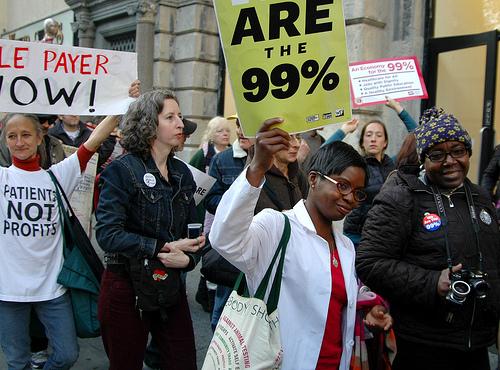
Photo by Sunset Parkerpix.
The Trump administration moved recently to allow states to require “proof of work” for Medicaid recipients.
The idea is punitive and counter-productive—not to mention hypocritical.
The new work requirements would affect a minority of Medicaid recipients: The two-thirds of Medicaid recipients who are elderly, have disabilities, are children, or are pregnant won’t be required to work. Neither, supposedly, will “medically frail” people with conditions like cancer in Kentucky, the one state that already has a plan in place.
But it’s worth taking a closer look at who would be affected, and how.
A solid majority of non-senior, non-disabled adults on Medicaid already work—and nearly eight in 10 live in households where at least one adult works. There are very good reasons to believe that cutting off health insurance for those who don’t would make it harder for them to get jobs.
Tellingly, of those who don’t work, the most common reason (36%) is illness or non-covered disability. Their stories are highly individual, but one thing they probably have in common is that taking away their health care will make it less likely, not more, that they’ll join the workforce anytime soon.
Then there’s the burden of proof. Medicaid recipients who do work could lose coverage just because they fail to jump through the bureaucratic hoops correctly to prove they have a job.
It’s worth looking at the Medicaid work rules in their political context.